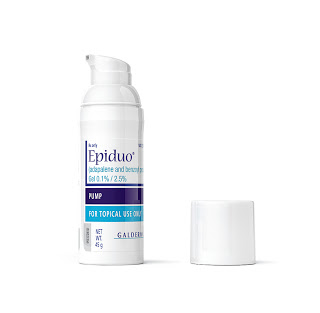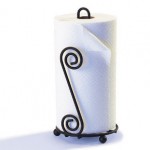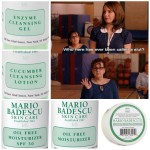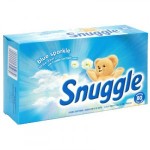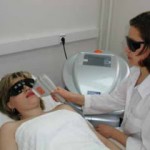This post is sponsored by the makers of Epiduo Gel and Differin Gel, 0.3%. All opinions herein are my own.
I don’t know about you, but all year long I’m barely afflicted with a bad blemish and THEN the mercury rises past 80 and it’s gross acne all along my jawline and I need to take action. Drinking fruit-spiked water helps, but sometimes better skin can only come from an Rx.
I recently received some great tips and advice from Dr. Diane S. Berson, MD, Assistant Professor of Dermatology at Weill Medical College of Cornell University and an Assistant Attending Dermatologist at the New York-Presbyterian Hospital.
A question I’ve had is why do people tend to breakout more during the summer? She let me know that “summer can be a challenging time for skin care, as many of us sweat when the weather gets hot! Perspiration can mix with oils on the skin’s surface and create a film that can cause acne to form.”
Instagram opportunities are far more plentiful in the summer and you want to look good in graduation photos, summer vacation pics and makeup-free on the beach. What precautionary measures can people take to avoid blemishes? “Dr. Berson says “one step is getting into a regular routine with your skincare habits – some people need to wash their skin once a day, while others may need to wash twice a day. The key is to clean your skin without over drying it.”
Need an alternative to the treatments you’ve already tried? Epiduo (adapalene and benzoyl peroxide) Gel 0.1%/2.5% is a great option to consider – it’s a dual-action, antibiotic-free medicine and is the only topical prescription product approved by the FDA to treat patients as young as 9 years of age. Get the process started by making an appointment with your doctor or dermatologist.
Says Dr. Berson, “In terms of products, Epiduo is a great option for people with busy schedules as it is the only antibiotic-free, topical acne treatment that combines two hardworking medicines to help clear up the breakouts you have now and help prevent future pimples from forming. It also comes in a convenient pump.”
The scoop on the active ingredients:
-
Benzoyl peroxide is one of the two effective medicines in Epiduo Gel. It’s an antimicrobial which kills the bacteria that lead to breakouts and helps prevent pimples from coming back.1
-
Adapalene is a type of retinoid, and the other medicine in Epiduo Gel. It unclogs blocked pores, helping to stop acne from forming under the skin’s surface.2
As another option, Dr. Berson says that “Differin (adapalene) Gel 0.3% uses a proven medicine and containing a retinoid – adapalene – to treat acne. Adapalene can help pores become unclogged, and clear pores are imperative to reducing acne and preventing the formation of future acne. What’s great about Differin Gel 0.3% is that it can be easily worn under make-up. Like Epiduo, Differin Gel 0.3% is available in a pump dispenser.”
For tips on keeping acne from ruining your summer plans, check out this page on Epiduo’s site:epiduo.com/tips.aspx or visit Epiduo.com for more info on this acne treatment
Important Safety Information for Epiduo Gel
Indication: EPIDUO® Gel is indicated for the topical treatment of acne vulgaris in patients 9 years of age and older. Adverse Events: In controlled clinical studies, the most commonly reported adverse events (>1%) in patients treated with EPIDUO® Gel were dry skin, contact dermatitis, application site burning, application site irritation and skin irritation. Warnings/Precautions: Patients taking EPIDUO® Gel should avoid exposure to sunlight and sunlamps and wear sunscreen when sun exposure cannot be avoided. Erythema, scaling, dryness, stinging/ burning, irritant and allergic contact dermatitis may occur with use of EPIDUO® Gel and may necessitate discontinuation. Click here for full prescribing information.
Important Safety Information for Differin Gel, 0.3%
Indication: DIFFERIN® GEL, 0.3% is a prescription medication known as a retinoid and is indicated for the topical treatment of acne vulgaris in patients 12 years and older. Adverse Events: In controlled clinical studies, the most commonly reported (≥1%) adverse events in patients treated with DIFFERIN® GEL, 0.3% were dry skin, skin discomfort, pruritus, desquamation, and sunburn. Warnings/Precautions: Patients should minimize exposure to sunlight, including sunlamps, while using DIFFERIN® GEL, 0.3%. If exposure cannot be avoided, sunscreen products and protective apparel should be used. Weather extremes, such as wind or cold, may be irritating to patients undergoing treatment with DIFFERIN® GEL, 0.3%. Avoid contact of DIFFERIN® GEL, 0.3% with the eyes, lips, angles of the nose and mucous membranes. Do not use DIFFERN® GEL, 0.3% on cuts, abrasions, eczematous or sunburned skin. As with other retinoids, use of waxing should be avoided on skin treated with adapalene. Patients should use caution with use of DIFFERIN® GEL, 0.3% in combination with potentially irritating topical products, like medicated or abrasive soaps and cleansers and products with high concentrations of astringents or alcohol. Caution should be exercised in using preparations containing sulfur, resorcinol, or salicylic acid in combinations with DIFFERIN® GEL, 0.3%. Click here for full prescribing information.
You are encouraged to report negative side effects of prescription drugs to the FDA. Visit www.fda.gov/medwatch or call 1-800-FDA-1088.
___________________
1 Kligman, AM, et al. New uses for benzoyl peroxide: a broad-spectrum antimicrobial agent. Accessed at: http://www.ncbi.nlm.nih.gov/pubmed/873676. June 24, 2013.
2 Eichenfield, LF, et al. Evidence based recommendations for the diagnosis and treatment of pediatric acne. Accessed at: http://pediatrics.aappublications.org/content/131/Supplement_3/S163.abstract. May 13, 2013.
Like this post? Don’t miss another one! Subscribe via my RSS feed.


